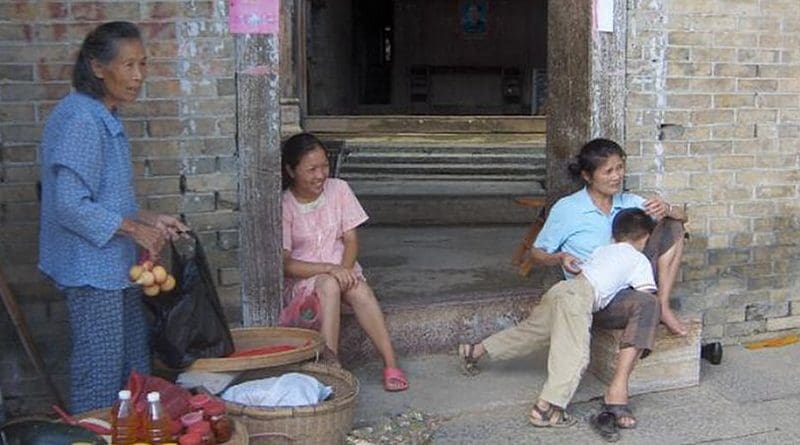China May Lift Two-Child Policy: Here’s What That Could Mean – Analysis
By CNA
By Michelle La Rosa
Amid reports that China may be considering putting an end to its two-child policy, experts are questioning the extent of a possible law change, and the effects it would have.
According to Bloomberg, the Chinese government had commissioned research on the childbirth restrictions in the country, and on the potential effects of lifting them. An announcement on the removal of the policy could come by the end of the year, or next year, the outlet reported, citing anonymous sources.
Reggie Littlejohn, founder and president of Women’s Rights Without Frontiers, said that removing the policy “would be a momentous victory for human rights and a vindication of the application of international pressure as a strategy to affect change within that totalitarian regime.”
“But I am holding off on this celebration,” she told CNA, noting that “the Chinese government just commissioned a study. It has not yet enacted the new law.”
She also voiced concern that birth penalties may still be enacted for pregnant women who are not married.
“In some places, an unmarried woman who is pregnant may be forced to pay a ‘social compensation fee’ of up to 10 times her annual salary,” Littlejohn said. “If she cannot pay the fine, she may be required to abort.”
Littlejohn has spent the last decade fighting against forced abortion, gendercide, and sex slavery in China. She and other human rights activists have documented abuses committed against women in China who become pregnant without permission from the state. In some cases, these women are forcibly removed from their homes and strapped to a table in a forced abortion procedure, and are sometimes forcibly sterilized as well.
China’s one-child policy was initially mandated in the 1970s in an effort to limit the country’s population growth. Recent numbers, however, show an aging demographic that could pose serious fiscal problems for the country’s future. Around 25 percent of the population is expected to be at least 60 years old by 2030, nearly double the percentage of that age in 2010.
The one-child policy was amended in 2013, permitting couples to have a second child if either of them were an only child themselves. In 2015, it was amended again, allowing all couples to have a second child.
Despite these changes, however, birth rates in the country have remained low, falling 3.5 percent last year, according to the Bureau of National Statistics.
After four decades of restrictive birth limits and national messaging aimed at convincing Chinese parents that one child is best, some experts wonder whether removing the policy will result in higher birth rates.
Huang Wenzheng, a senior researcher at the Beijing-based Center for China and Globalization, suggested that the change in policy will likely have little effect on the birthrate in the country. According to Bloomberg, he cited the relatively low numbers of women of childbearing age in China and a low desire to have multiple children.
Littlejohn warned that the “devastating legacy” of the one-child policy will remain even if the restrictions are lifted. Babies born now will not enter the workforce for decades, she noted, meaning that the shortage of workers will not be alleviated for years.
Another consequence of the policy has been couples resorting to abortion or infanticide if they discover their child is a girl. A strong male-preference exists in China, as boys can keep the family name and run the family business or farm.
Consequently, China has faced a serious imbalance in their gender ratio, with over 30 million more males living in China than females.
“Tens of millions of men will never marry because their future wives were selectively eliminated,” Littlejohn said.
The country has also seen a steep rise in senior suicide, with the suicide rate for the over-65 age group four to five times higher than the general population, according to a study in the American journal Aging and Disease.
Littlejohn has attributed the high suicide rate in part to the lack of family support for the aging population, due to the one-child policy. She told CNA earlier this year that she had once encountered an elderly woman in China who told her that “some days she only ate salt and she had bought a rope to hang herself with when life got too tough.”


This policy was one of the most disastrous policy made by the Chinese government, not only for social and human suggerings, but also for the long term Chinese economic and growth for the nation as a whole. A great proof of some policies made by a totalitarian regime can backfire and even lead to the weakening of the nation in the long run.